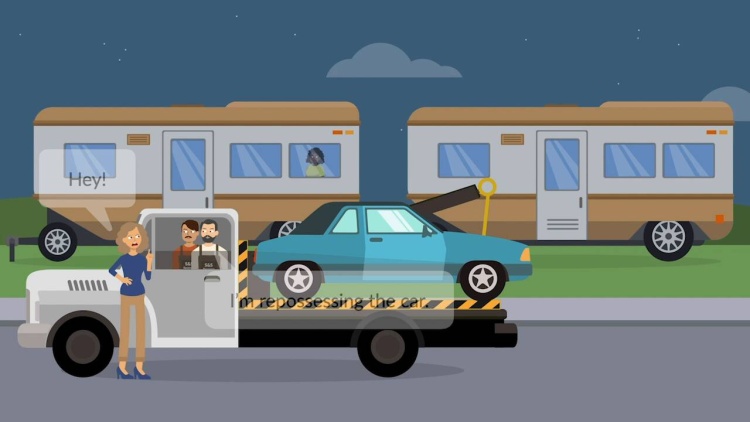Williams v. Ford Motor Credit Company
United States Court of Appeals for the Eighth Circuit
674 F.2d 717 (1982)
- Written by Melanie Moultry, JD
Facts
David Williams, the husband of Cathy Williams (Williams) (plaintiff), bought a car from a dealer. The car was titled in both of the Williamses’ names, but only David’s name was on the loan papers. The car loan was assigned to the Ford Motor Credit Company (company) (defendant). David and Williams later divorced. The divorce court granted Williams title to the car, but required David to make payments to the company. David defaulted and signed a repossession authorization. Williams was awakened at approximately 4:30 a.m. by a noise outside of her home. Williams discovered two men in the process of towing her car away. Williams stopped the tow truck by yelling. One of the men explained that he was repossessing the car for the company. Williams informed him that personal items were located inside of the car. The man retrieved the items for Williams and drove away with the car. Williams reported the car stolen to the police and then sued the company for conversion. At trial, Williams testified that the tow truck driver had remained polite and had not threatened or caused her to fear physical harm. The jury awarded Williams $5,000 in damages on the basis that the repossession had resulted in an unlawful “breach of the peace” in violation of Arkansas Statute § 85-9-503. The statute, which codifies Article 9 of the Uniform Commercial Code, allows a secured party to repossess its property without judicial process if the repossession occurs without breach of the peace. The district court entered judgment for the company notwithstanding the verdict. Williams appealed from the judgment, asserting that the repossession had occurred unlawfully, because it was accomplished by the risk of violence.
Rule of Law
Issue
Holding and Reasoning (Benson, C.J.)
Dissent (Heaney, J.)
What to do next…
Here's why 906,000 law students have relied on our case briefs:
- Written by law professors and practitioners, not other law students. 47,100 briefs, keyed to 995 casebooks. Top-notch customer support.
- The right amount of information, includes the facts, issues, rule of law, holding and reasoning, and any concurrences and dissents.
- Access in your classes, works on your mobile and tablet. Massive library of related video lessons and high quality multiple-choice questions.
- Easy to use, uniform format for every case brief. Written in plain English, not in legalese. Our briefs summarize and simplify; they don’t just repeat the court’s language.





